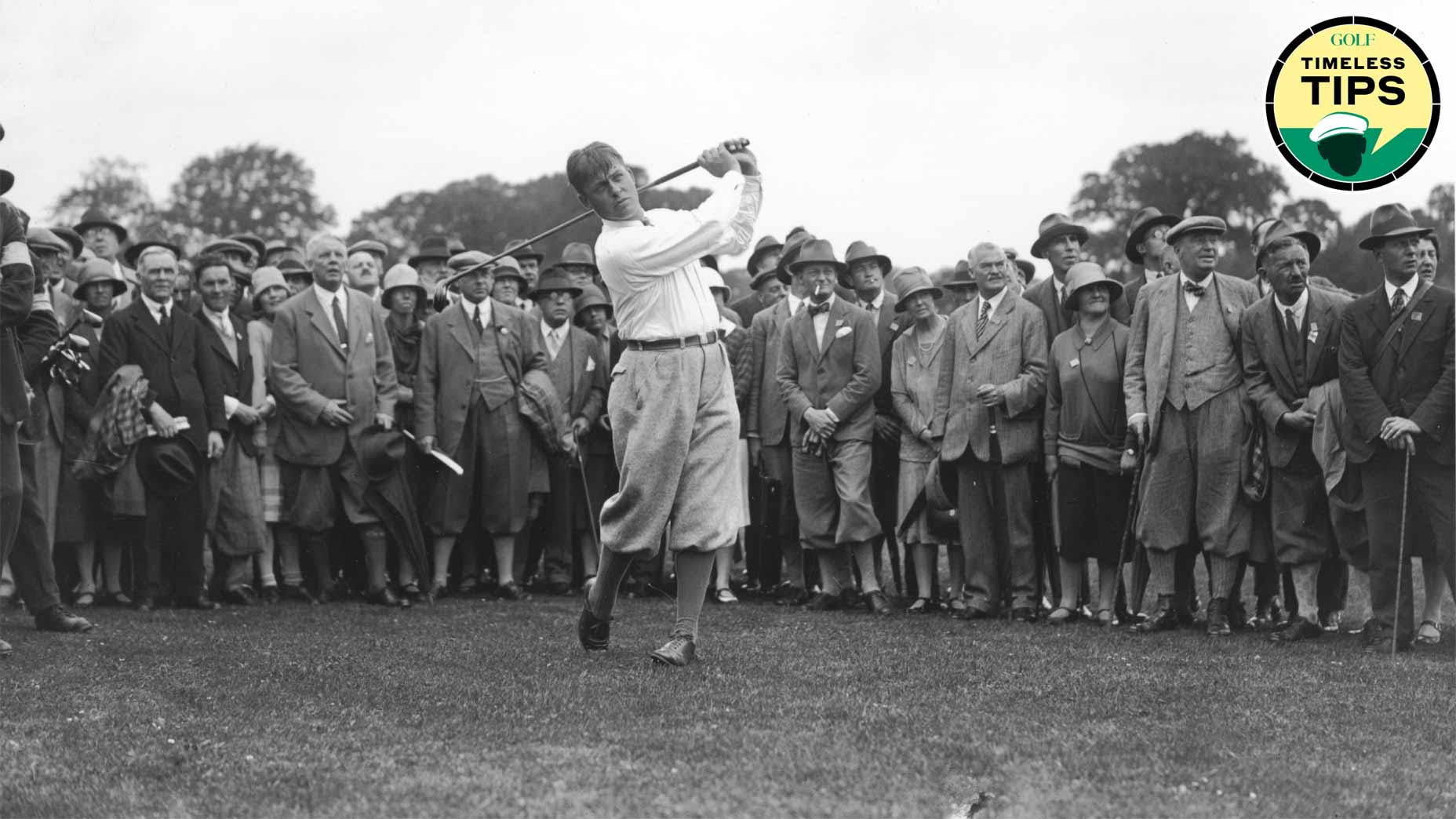Having a strong mental game in golf might not help you hit the ball better or necessarily lead to fewer 3-putts, but it will lead to improvements in your game — especially when you’ve got to rebound after a bad shot or a blowup hole.
Every single golfer has had that moment where they want to snap the club in half, throw it, and scream profanities. But if this is you, and it’s been all of us at some point, it’s not a healthy way to build your confidence back up and move on to the next shot.
The 1 mental mistake recreational golfers make way too oftenBy: Zephyr Melton
So how on earth can you possibly maintain your composure after duffing a shot in order to finish off a hole on a high note? By learning the tricks to a strong golf mental game.
To help understand what to do, I tapped author Jon Sherman — who has a forthcoming book that dives into golf’s mental game, entitled The Foundations of Winning Golf: A Guide to Competition for Golfers of All Levels — to get his thoughts.
Do this to enhance your mental game in golf
In a recent Instagram post, Sherman posted about nine different ways to improve your mental game in golf.
Sure, we’ve all probably heard about breathing techniques and visualizing success, but Sherman’s nine tips are much more in-depth than that, and are meant for the golfer who’s serious about lowering their handicap. Take a look below to see his mental tips.
1. Commit to fun
What’s your purpose for playing golf? Yes, scoring low is part of it, but having fun should be the main reason!
I know, hitting better shots and seeing your scores improve is a key to having fun, but don’t lose sight of the fact that you’re most likely not competing for any major championship — so tee it up with a clear mind.
Sherman claims many amateurs take the game too seriously, which, in effect, leads to tension and poor performance. When you ditch that mentality, you’ll loosen up and actually start playing better.
2. Stop worrying about how others think
In a recent article for GOLF.com, Sherman wrote about the “spotlight effect” — which is defined as “the psychological phenomenon by which people tend to believe they are being noticed more than they really are.” Stand up if you’ve fallen victim to this before.
But just because you think you need to be perfect with every shot doesn’t mean that everyone else thinks you need to be. In fact, Sherman says it’s quite the opposite, as golfers tend to be selfish and only care about their own outcomes, not the performances of their playing partners.
Once you can let go and avoid golf anxiety, you’ll avoid pressing to impress others — and your game will improve drastically.
3. Avoid being a control freak
According to Sherman, most golfers are control freaks — so don’t beat yourself up if you fall under that category. The key is to figure out how to lose that trait, though, which can help you build a foundation and trust that process before each round.
To do this, Sherman suggests sticking to his “Big 3” controllables: preparation, routine, reaction.
Accept the fact that some things are out of your control — like the weather, the pace-of-play, etc. — and avoid those factors throwing you off of your game.
4. Stay in the moment
One of the most difficult things about golf is simply being present. Sure, we all love being out on the course and enjoying the fresh air, but when it comes to performing, we often judge ourselves (quite harshly, in fact), stewing over what’s already happened.
Wouldn’t it be great to eliminate such anxiety from your next round of golf? Of course! That’s why Sherman says to practice meditation techniques while playing, which can help calm your heart rate, focus on the now (not the past or future), and simply relax.
5. Grow your grit
Sherman quips about the word “grit” often getting a bad rap, and says it’s actually a trait that every golfer needs to possess in order to navigate every round of golf.
Even the best players in the world need to grind out days on the course, so having the grittiness to persevere through any bumps is what will help build your mental game in golf. By practicing this trait, you’ll be able to fuel yourself to stay focused and perform the best you can — no matter what obstacles get in the way.
6. Balance your ‘caring’ game
As competitors, most golfers care way too much. And while Sherman says most players perform their best when they find the balance between caring too much and not at all, he admits this isn’t an easy skill to develop.
While Sherman offers some analogies to help players understand the concept in his Instagram post, it’s on you to decide the best method to perform. But treating every shot as if it were life and death is definitely not the way to play the game, so try rethinking the importance of every single shot in order to stay loose and confident.
7. Control your swing thoughts
How many of us worry about our swing mechanics prior to taking a shot? I don’t want to assume anything (that’s a bad trait to have), but I’d imagine a good percentage of amateurs would say they make this mistake.
Instead, Sherman says it might be time to ditch the internal thoughts and figure out how to use external or neutral thoughts. These include things like focusing on brushing the blade of grass just in front of the ball, or humming a song to yourself to set your rhythm and help you relax.
8. Commit to a pre-shot routine
Locking in on your shot is one of the most important things you can do on the golf course. Sure, we all enjoy some banter back and forth with playing partners as we line up our shot, but when it’s go time, it’s go time!
Sherman says a player should examine the conditions prior to each shot, specifically looking at things like the distance to the target, the lie, any weather conditions, etc. Next, stand behind your ball to gather your thoughts before starting to execute your game plan.
A pre-shot routine “doesn’t need to be long, but it should be intentional,” adds Sherman.
9. Always have a post-shot routine, too
Like a quarterback in football after throwing a pass, you’ve got to have a short-term memory — regardless of the result. So Sherman suggests incorporating a post-shot routine into your game, taking a quick second to review the outcome (whether good or bad), and process what happened. Then, after analyzing the shot, the most important tip is this: Move on! That shot is over, so it’s time to turn your attention to the next one.
Jon Sherman is an Amazon best-selling author, and just released his second book, The Foundations of Winning Golf: A Guide to Competition for Golfers of All Levels — which is available here.












